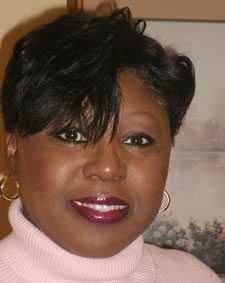CDC Women in STEM Careers - Martha Boisseau, MPH
Health Educator, National Center for Chronic Disease Prevention and Health Promotion, CDC

From as early as she can remember, Martha Boisseau wanted to deliver babies and help women be as healthy as they could be. But to her disappointment, she found she really didn’t like biology and organic chemistry classes, so she took a road less traveled, which made all the difference.
On changing direction, she says, “Always be alert for opportunity. Don’t be afraid to try something outside of your comfort zone.”
A Teacher Makes a Difference
I decided to try a different course of study. I went to my counselor, and she suggested I get a degree in health education, which helps people and communities improve their health. I had never even heard of it as a possible major, but once she showed me the curriculum, it all clicked.
I changed my major and earned straight As in public health. I wish someone had told me about it years before. My college experience would have been so much better. I went on to earn a master’s degree in public health.
"Although it was hard giving up my dream of becoming an obstetrician, I’m happier now than I’ve ever been. I love working in public health and imagine what else I would do. Working at CDC is icing on the cake--helping to save lives and protect people from health threats to have a more secure nation."
Public Health: Saving Mothers, Babies, and Teens
Knowing I make a difference in the lives of mothers and babies throughout the nation is what lights me up inside. In CDC’s Maternal and Infant Health Branch, we focus on research and science to improve pregnancy health and care, as well as fetal, newborn, and infant health.
My role as a manager is to support employees with their projects by making sure they have the resources they need and that they follow standards. But I still keep abreast of the science and research in reproductive health and health education and communication, so that makes me happy. Our research team looks at many areas of life—weight gain in pregnancy, tobacco use in pregnancy, early birth.
Recently, we have seen fewer preterm deliveries. We’re trying to understand why. That trend is good because being born early is a risk factor for infant death.
Early in my career I worked directly with the public. My first job was managing a teen sexually transmitted diseases project in Georgia. A lot of the young women had one partner, but their partners had several partners. They were getting diseases from these young men with several partners.
I also worked on a project called Children First that educated nurses around the state to help encourage healthy child development. Another job in my health education career was as a prenatal smoking cessation coordinator, which involved training nurses to help mothers-to-be quit smoking.
My earlier jobs taught me the importance of our work in public health. We really do save lives. I mainly work in maternal and infant health. Women who are healthy and prepared for pregnancy have a much better chance for a healthy pregnancy. That sets the baby up for a lifetime of good health. Healthy people create a healthy world. That’s the beauty of public health: It all links together.
Advice to Young Women
- Have the courage to make a new map if you need to!
- Keep your dreams alive, even if they take you in a different direction than you planned.
- Always be a team player. If you’re willing to do the work, no matter how routine the task may be, you will get further in your career than you ever imagined. Show up ready to work! People will recognize that, and you will be rewarded for it.
- Page last reviewed: March 3, 2014
- Page last updated: March 3, 2014
- Content source:


 ShareCompartir
ShareCompartir